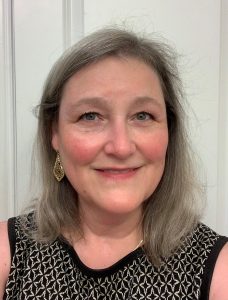 Our mission is rooted in compassion and connection. Each one of our teammates who dedicates their time to advancing well-being and quality of life for those we serve has an impactful story to tell. Hospice Chaplain, Carolyn Roper, in Peoria, IL, shares what drives her to make a difference every day and why she is passionate about her role at Compassus.
Our mission is rooted in compassion and connection. Each one of our teammates who dedicates their time to advancing well-being and quality of life for those we serve has an impactful story to tell. Hospice Chaplain, Carolyn Roper, in Peoria, IL, shares what drives her to make a difference every day and why she is passionate about her role at Compassus.
Q: What led you to become a hospice chaplain, and what do you find most fulfilling about this work?
A: When I was pursuing the Master of Divinity that would prepare me for a life of service, I never thought I would become a chaplain, let alone a hospice chaplain. Looking back on more than 12 years of service, I almost can’t imagine doing anything else! I have the privilege each day to talk with people in the most authentic, and sometimes vulnerable ways that are not often seen in other venues.
Q: What personal value is important to your role as a chaplain, and how does it influence your work?
A: It is important to my role as a chaplain to understand that one doesn’t have to be religious to be spiritual. We are all spiritual. Each one of us has moments of deep connection that give us a view of things that are bigger than our individual selves. People have been exploring that idea since the beginning of human thought. I hear it reflected in our patients every day. To honor and explore that greater meaning as we talk about life is an essential task that becomes all the more important as we face the end. As a chaplain, I have the distinct goal of walking alongside patients and their families as they engage in the great spiritual and existential questions and appreciation of their life.
Q: Why is spiritual care an important part of hospice care?
A: I find that having a trained chaplain on the team is an important part of addressing end of life concerns that impact how patients and families cope with all that is happening. Not every patient is part of a community of faith like a church, temple or synagogue; and even if they are, not all religious leaders have the specialized training that chaplains have in dealing with questions of faith, fear of dying and fear of what happens after they die. We have research from chaplaincy and palliative care that shows patients have less physical pain when they receive care for spiritual, emotional and mental pain.
Q: What is the primary focus of chaplaincy, and how does it support patients and families?
A: Most of the support I provide as a chaplain focuses on what gives meaning to life. Religious practices are a small part of that as most people identify the need for connection, including reconciliation, with family or close friends. Our patients and their families also need to know that their life mattered. As a chaplain, I give space and voice to the expression of these needs so they can be met and bring peace at the end of life.



